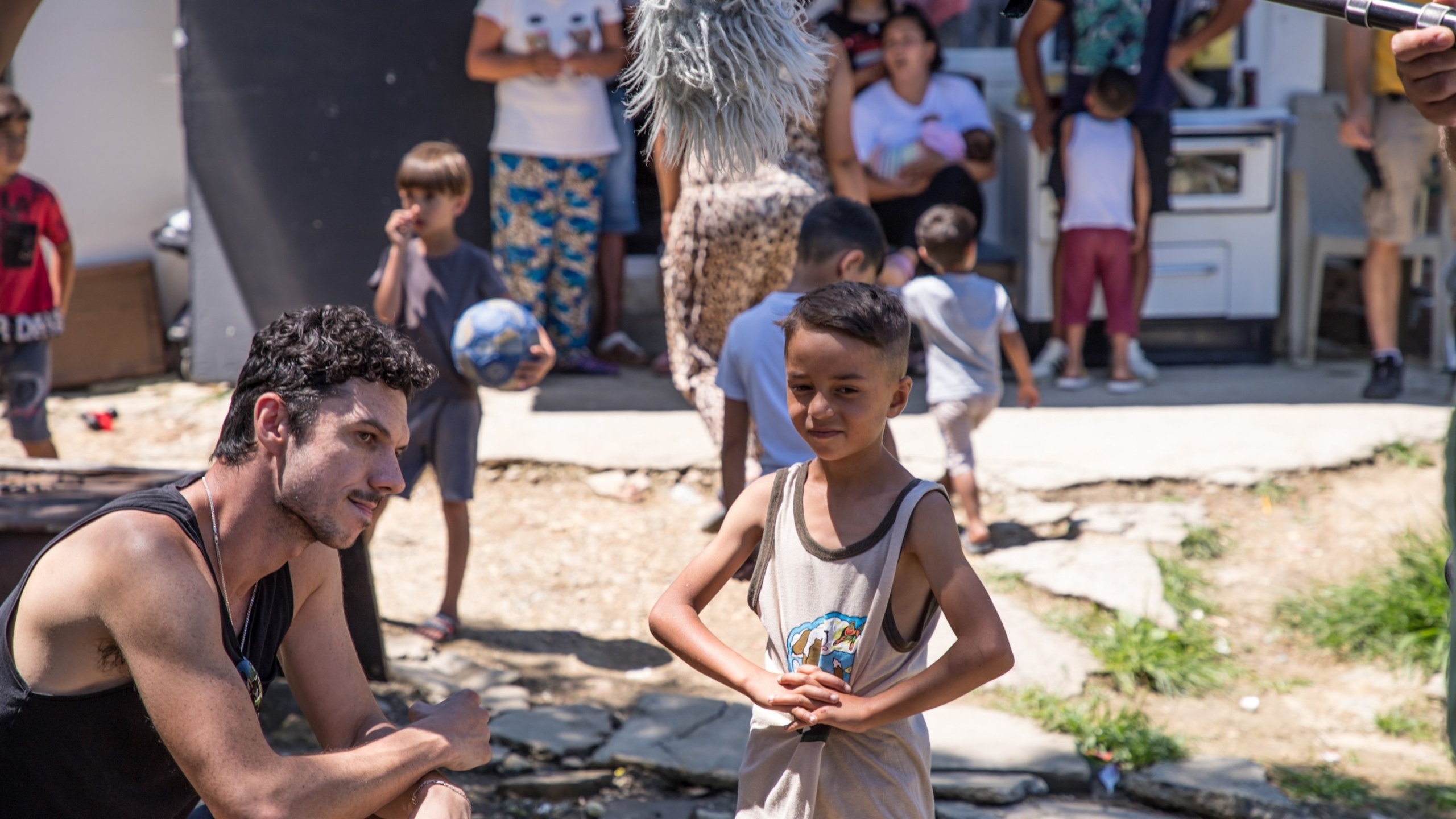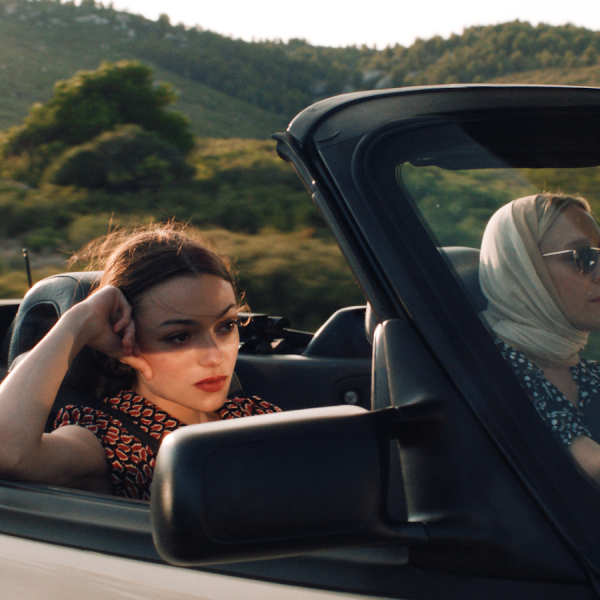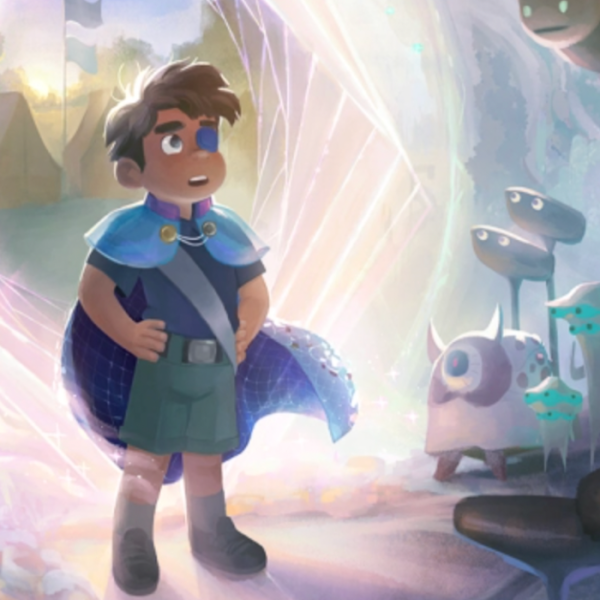Goran Stolevski is the rare rising filmmaker who is three-for-three with his movies “You Won’t Be Alone,” “Of an Age,” and “Housekeeping for Beginners,” all set up at Focus Features. For Venice premiere “Housekeeping for Beginners” (out April 5), a chaotic portrait of a patched-together found family, the Australian director returns to his birthplace, North Macedonia, using a rowdy household as a microcosm for the country’s politically fraught melting pot of Macedonians and Roma people.
For this true cinéma vérité tale — true in the sense that it shot on real locations, without rehearsals, and with many unknown actors — Stolevski had a lucky stroke of dream casting led by “4 Months, 3 Weeks and 2 Days” star Anamaria Marinca, who worked with him on “You Won’t Be Alone.” She plays healthcare worker Dita, living in modern-day North Macedonia in its capital of Skopje with her Roma girlfriend Suada’s (Alina Serban) children and their friends. Now taking over the house, Dita promises her terminally ill partner that she’ll continue to mother her kids after death. But that brings its own complications once Dita’s live-in gay best friend Toni (Vladimir Tintor) is forced to register as the girls’ legal father to avoid separation. LGBTQ citizens of Macedonia, after all, lack the legal protections of opposite-sex couples, forcing this found family to find common ground under a divided roof.
Layabouts seem to come and go from its walls. Toni, for one, has a twinky boyfriend (Samson Selim) who won’t back off after a one-night stand. Plus, Sauda’s daughters, which include tiny troublemaker Mia and rebellious teenager Vanessa, are already a handful. Stolevski invites you into the panic and chaos of this found family’s plight, as well as their joys, and it is amazing what he achieves with his young actors, mostly first-time performers and scouted from open casting calls.
The kernel of the movie began with an image Stolevski saw posted on Facebook by queer Australian filmmaker Tony Harris. “It was just a photo from what was his day-to-day life in the ’70s when he first moved to Melbourne in the late ’70s with his boyfriend,” Stolevski said. “They were living in this house with eight gay women, and it was just one snapshot. I just remember going, ‘I really want to be in that space.’ There was this sense of a cocoon-like space in that time and place where obviously it would’ve been complicated for them to live life in a relaxed way, and I thought it would be a great setting for a story.”

But for Stolevski, “It made no sense for me to write a period film. I was very nothing and no one and unemployed. There was no one who was going to finance me doing something in the ’70s. But also, I was more drawn to a present-day story, and then it makes more sense outside of the economically developed countries. So Macedonia was the first point because I know it. Macedonia could stand in for all of Eastern Europe and Southern Europe and much of the Middle East, quite frankly. From an Anglo-Saxon, western point of view, it’s this kind of exotic place, but actually it is kind of the average experience for most queer people in the world living today. Most of us don’t live in places where it’s easier to be queer.”
Stolevski, who emigrated from Macedonia to Australia with his parents as a teenager, said he, too, “grew up in a kind of hectic household where there were six of us living in a two-bedroom apartment with three different generations and 47 different cousins visiting every day. I think that dynamic is in my blood. I don’t see it reflected. I don’t see it on screen very well very often. I think it’s actually really interesting and exciting. It’s probably a bit much for some people, but life was a bit much, and I really like that. I actually miss it, quite frankly, living in Australia now.”
Stolevski, who lives in Melbourne with his husband, said “I’ve never felt at home in Australia. I still really don’t. It’s even things like the walls are made of plaster; you knock on them and they’re hollow. I lived in the suburbs [growing up], which is just a 25-minute drive from the city center of Melbourne, population 5 million. I remember having to walk to school for 35 minutes, and I just never saw people on the street. It’s just houses. There’s maybe some dogwalkers or joggers. I came from a densely populated, hyper kind of crowded space [in Macedonia] to somewhere that was very empty and very hollow. The walls were hollow, and I actually even creatively find Australia a lot less inspiring than most places, including Macedonia. But my life is there, my husband is there, I don’t want to complain. Hell, without Australia I would not have been a filmmaker because, let me assure you, in Macedonia, you not only need to be rich, you need to have a surname before you can break through usually.”
Looking at the cinematic output and box office of Macedonia, and it’s pretty much nonexistent. “Housekeeping for Beginners” was submitted by North Macedonia for the 2024 Best International Feature Oscar race, and while this rousing family drama earned a Golden Globe nomination, it did not make the Oscars shortlist. (The film played a festival in Macedonia in September 2023 but does not have a release date on the books in the country currently, according to IMDb.)

“I already know most people who will see this film in Macedonia. It’ll be the same as ‘You Won’t Be Alone’ or ‘Of An Age,’” Stolevski said. “Almost everyone saw them on torrent, and it’s not even something that you question. It’s just the reality. There’s not many cinemas in the country, so these films aren’t easily available anyway. But there’s also just the reality. It’s an impoverished society. How much spending income do you have to go to the cinema or all these other things? And yeah, queer art-house cinema is not the priority for most viewers.”
That lack of a cinema culture also extended to the casting, which involved working with two casting scouts to find the right Roma kids to play the roles in “Housekeeping for Beginners.”
“There are almost no trained actors of Roma at any age range, much less in the younger age range. And there’s a lot of impediments, economic and otherwise, to them even pursuing any acting roles,” he said. “One [casting director] was just in charge of the Roma characters because there was no traditional casting process. She was on the streets in Shutka every day for three months, photographing absolutely everyone who might ever want to be in a movie in any age bracket because there’s, like, 30 speaking roles.”
Keeping with the film’s vérité spirit, there weren’t “actually any traditional auditions at all. I was just kind of going based on energy. I do that anyway, even with professional actors, trying to sort of adapt the character as written to the actor rather than forcing the actor to adapt to the character.”
And Stolevski has no pretensions about how people see “Housekeeping for Beginners,” whether in theaters or illegally, for the most part. “For me, it’s important for you to see the film,” he said. “I made this one to connect with someone. So if there’s a kid in rural Macedonia, small town Macedonia that really is desperate to see this film, and [torrenting is] the only way they can get it, I’m not going to get angry. I think if it’s in America or Australia and that’s the way you’re choosing to watch a movie, I might have less empathy for you, actually.”
Stolevski had a similar experience with “Of an Age,” a gay “Before Sunrise”-esque romance set in Australia around a dancer and his infatuation with his best friend’s older brother. “A friend of mine who’s a Berlinale programmer, he messaged me because a friend of his was an aid worker in Somalia and told him that she had just watched ‘Of An Age’ with a group of people. I don’t know how, but I can imagine how they got access to it. And to me, the notion that people in Somalia watched ‘Of An Age,’ I didn’t give a shit how they got to.”
“Housekeeping for Beginners” opens in theaters from Focus Features on April 5.




